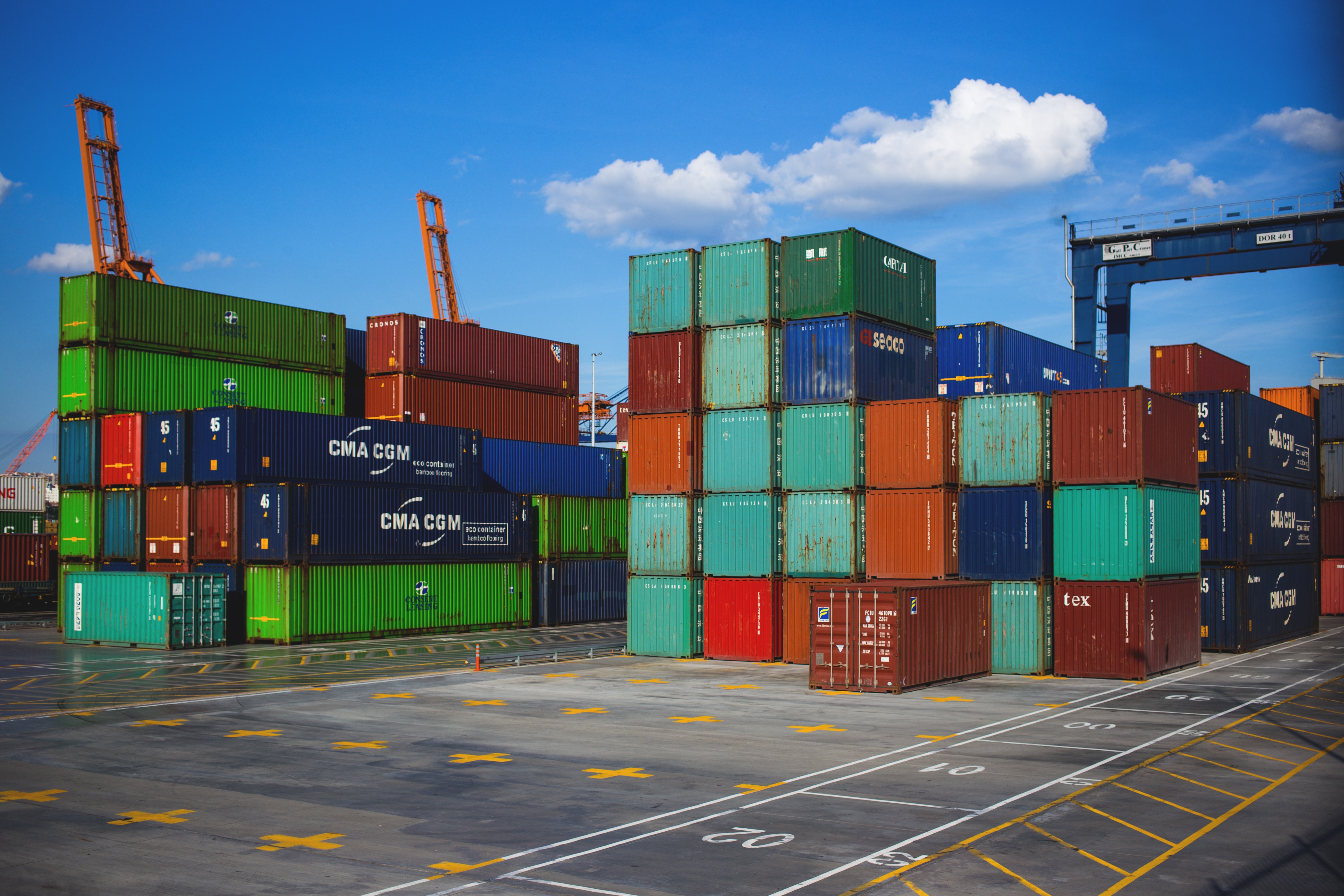It’s a moment of enormous opportunity, with Industry 4.0 transforming the way businesses collect, process, and deploy data, and Maintenance 4.0 applying those tools and techniques to revolutionize asset management.
A strategic approach to Asset Performance Management (APM) helps you keep critical equipment and production lines up and running, using the mountains of operational data now available to help you track equipment performance, anticipate the need for maintenance, and prevent breakdowns before they occur. But even in steady economic times, and certainly in the midst of a global pandemic, the decision to embrace the new technology will always be guided by the bottom line: Will the cost of the new system be justified by the efficiencies and cost savings it delivers?
Infor’s Best Practice Guide, “Why your EAM strategy must evolve to increase food safety,” focuses on five specific, tangible benefits of APM, to help you make an informed decision on an approach that will soon be the price of entry for successful business operations in the 21st century.
Read More
Topics: ERP, Food & Beverage, Distribution, Supply Chain, Supply Chain Visibility, Supply Chain Network, Food Technology, Cloud BI, CloudSuite Food & Beverage, Enterprise Asset Management, Enterprise Software, Infor CloudSuite M3, Infor CloudSuite ERP
The evolution of supply chain business models has been accelerated by unprecedented disruptions. As a result, there has been a clear shift from analog supply chains models of the past into a trajectory towards a digitalized ecosystem. These new business models recognize and necessitate the move to a digital and integrated supply chain that provides visibility and ease of use for consumers.
This journey is about moving towards a world where all parties participating across your network are connected to a single version of the truth. Supply chain thinking is shifting from ‘linear supply chains’ to ‘supply chain eco-systems’ propelled and supported by digital technologies.
Gartner has established a five-stage model of the journey to supply chain maturity, ranging from manual, analog systems to a fully digitalized ecosystem. Key differentiators along this evolutionary chain include consideration of data and collaboration, with the ultimate goal of integrating data across multiple systems to achieve a fully connected ecosystem that provides transparency and visibility for your company both internally and externally.
Read More
Topics: Manufacturing, Distribution, Supply Chain, Supply Chain Network, CloudSuite, Enterprise Software, Supply Chain Operations, Supply Chain Management
There has never been a better opportunity for you to embrace technology that drives innovation. Transforming and evolving as an organization is now a requirement to thrive and protect continuity of business. Infor helps Lawson S3 customers drive digital transformation and ensure business continuity with Infor industry CloudSuites. Infor CloudSuite customers leverage improved automation and role-based security to tighten access to sensitive data, scale quickly and efficiently, and harness the power and responsiveness of Infor’s modern system architecture to stay ahead and compete.
Infor CloudSuites are built on Amazon Web Services (AWS), the market leader for cloud-based infrastructure as a service and platform as a service for over 10 years. This best-in-class system architecture is purpose-built for innovation, providing you with industry-leading scalability and availability, integrated governance and control, and unparalleled extensibility to democratize data for end users.
Infor CloudSuites, including CloudSuite Healthcare, CloudSuite Corporate, and CloudSuite Public Sector, provide an easy path for Lawson S3 financials and global human resources customers to digitally evolve business operations. CloudSuites deliver industry-specific capabilities without extensive customizations or integrations. Infor’s enterprise resource planning (ERP) competitors struggle to tap into the latest advances in enterprise functionality with as little business disruption and as cost effectively as with our AWS tag team.
Read More
Topics: ERP, Food & Beverage, Distribution, Supply Chain, Supply Chain Network, Food Technology, CloudSuite Food & Beverage, Enterprise Asset Management, Enterprise Software
Even when your warehouse operations appear to be running smoothly, change and disruption are constant battles that supply chains must fight. Black swan events, emerging technology, new regulations, and shifts in consumer demand have created an increased need for “always up-to-date” functionality. While steps can be taken to mitigate risk, when changes occur it’s still up to you and your team to adjust and ensure new warehouse capabilities are implemented quickly.
If your organization previously reviewed, dismissed, or put off moving your WMS to the cloud, it’s time to reevaluate. Decisions that seemed to make sense last year or even last quarter, likely look very different through today’s lens. With business models drastically changing and uncertainty lingering in every corner, what if you could offload critical IT responsibility to an organization you trust to manage it all for you?
Read More
Topics: ERP, Supply Chain, Warehouse Management Systems, Product Lifecycle Management, Infor M3 ERP, Enterprise Software, WMS, Supply Chain Management
Since the Industrial Revolution, manufacturing processes have undergone several revolutions characterized by ever-greater automation. Today, the fourth industrial revolution, known as Industry 4.0, takes advantage of big data and machine learning to drive smart, highly automated processes. A pretty familiar concept.
Less well understood, but equally momentous, has been a parallel evolution in asset maintenance. Maintenance 1.0 relied on highly-trained specialists to visually inspect machinery. Maintenance 2.0 gave humans instrumentation to measure how equipment was running, while Maintenance 3.0 used real-time monitoring to understand the condition of an asset systematically and programmatically. Now with the Internet of Things (IoT) collecting sensor data, Maintenance 4.0 sees that data captured in a data lake repository, and algorithms and analytics applied to better predict when a given asset will fail, and how to correct the problem—preventing a potential food safety issue.
Read More
Topics: ERP, Food & Beverage, Distribution, Supply Chain, Supply Chain Network, Food Technology, CloudSuite Food & Beverage, Enterprise Asset Management, Enterprise Software
Wonderful people like you are part of the significant reasons why we are so thankful this year. We have enjoyed connecting with you and are grateful for your warm reception of our communications.
Happy Thanksgiving from all of us at Independent Computer Consulting Group - ICCG.
Read More
Topics: Thanksgiving
The urgency of data security and privacy can’t be overstated. In 2021, the global average cost of a data breach was $4.24 million, representing a 9.8% increase over 2020. Yet the immediate costs are a trifle when compared to the incalculable, lasting brand, reputation, and business damage that a data security incident causes.
Understanding the present threat
Risks associated with information security threats increase minute by minute. Bad actors with malicious intent are continuously evolving their strategies and attempting increasingly creative and sophisticated security breaches. The constant potential threat of cyberattacks and security breaches can be taxing on IT teams and organizations that need vigilance, resources, talent, and educational resources just to stay ahead.
The number of potential attackers is also expanding to include not only independent attackers and small groups, but also state-sponsored hacking organizations that are much better organized and funded. These larger groups can afford to devote multiple resources to breaching the defenses of small and large organizations over a long period of time—a level of commitment attackers once reserved only for the most strategic targets.
Read More
Topics: Manufacturing, Distribution, Supply Chain, Warehouse Management Systems, Enterprise Software, Security & Compliance, WMS, Supply Chain Management
Asset performance is key for food and beverage processors to reliably produce safe food at the lowest cost. This goes beyond only having the equipment available. Asset performance is one of three variables used to calculate the Overall Equipment Effectiveness (OEE)—the other two variables are availability and quality. In food and beverage processing, quality is primarily about food safety, which is non-negotiable. Studies show that a food safety issue leading to a recall in average costs $10 million. The associated brand damage can be unmeasurable.
The state of equipment and the behaviour of workers have a big impact on food safety. Eliminating food safety risks and risks to workers are the primary responsibilities of any food processing company. Numerous food safety issues caused by contaminations with extraneous material like metal coming from broken filling equipment, or grease or detergent remnants are reported to the FDA and RASFF every year. Cross contamination, pathogens, and faulty labeling are other possible reasons why food and beverage manufacturers must recall products
Read More
Topics: Digital Transformation, Food & Beverage, Distribution, Supply Chain, Artificial Intelligence, digital technology, Food Technology, CloudSuite Food & Beverage, Enterprise Software
The fashion industry thrives on innovation. It’s what the consumer wants from us—something new, not just clones or replacements for worn-out items. New product introductions are critical to business success, but only half of them achieve the profit objectives set before launch. To improve the ratio of hits to disappointments, it is essential to listen to the consumer and collaborate with the supply chain.
The consumer sets the bar for value and the supply chain determines whether you meet or miss it. The next decade will call for significant materials and process innovations at both the micro (product) and the macro (enterprise, supply chain, and industry) level. If shorter, more frequent product introduction cycles were the only challenge… but they’re not. At strategic planning levels, the industry must figure out how to convert to more sustainable ways of doing business, starting with raw materials and research and development and expanding product lifecycle management practices to include recycling. At the operational level, rethink the way you work internally and collaborate with supply chain partners to eliminate waste throughout the value chain. If a process doesn’t add value for the consumer, don’t do it. Optimize the entire value chain and focus it on value creation. Innovations arise at every stage, when all the partners can see the value chain as a whole.
Read More
Topics: Fashion & Retail, Distribution, Supply Chain, Fashion & Apparel, Cloudsuite Fashion & Apparel, Infor CloudSuite PLM for Fashion, Enterprise Software, Supply Chain Management
In a data-driven world, navigating the challenges of today’s supply chains requires an unprecedented level of agility. This calls for supply chain tools that deliver network-wide trading partner connectivity to enable real-time visibility, demand and supply planning, and production scheduling insights.
Fortunately, modern tools deployed in an organization’s technology stack can digitally transform the supply chain, revealing new opportunities for innovation across the entire network.
At the same time, automation and advanced analytics delivered in a digital environment can synchronize production and distribution activities to match demand.
Read More
Topics: Manufacturing, Distribution, Supply Chain, Warehouse Management Systems, Enterprise Software, WMS, Supply Chain Management






.jpg)


.jpg)

